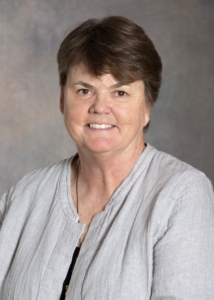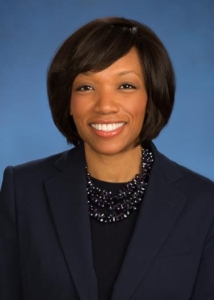Success in your career can be determined by your network, which is why women can’t overlook the importance of building and maintaining relationships — not just in your company or department, but across a broad swath of the industry.
“Like many women, at the start of my career, I was very heads down on my work as I sought to perform at a high level,” says Wells Fargo’s Stephanie Smith. “While I created relationships in my company, I learned over the course of my career how critical it is to have those relationships across an industry, whether you’re trying to build a team or benchmark best practices.”
Capturing the Opportunities Available in Marketing
Currently Smith is COO for Wells Fargo Marketing, and her goal is to create a world-class marketing organization within Wells Fargo. The domain is vast, as marketing is a centralized enterprise function that supports every business in the company, as well as digital marketing and other functions.
Before moving into this role, Smith had spent a decade in leadership roles in digital channels at Wells Fargo and Bank of America, where she oversaw the online banking and electronic payments functions as well as digital marketing and sales.
Before joining the corporate world, Smith had been a political appointee in the Clinton administration, where she was the General Deputy Assistant Secretary for Housing; prior to that she had worked with national and regional non-profits that focused on affordable housing and community development.
While her career has encompassed very different assignments, Smith says that the connective tissue among all her positions has been her passion for thinking about how capitalism can help working- and middle-class Americans achieve their goals.
While it’s hard to choose just one professional achievement across a career that spans so many domains, Smith says that she is most proud of the role she has had in building high-performing teams no matter where she was.
Today she sees a number of opportunities and challenges, as the function of marketing is changing rapidly due to the impact of technology, as is every part of the business world.
Smith finds herself most excited about the work Wells Fargo is doing to apply robotic process automation, artificial intelligence, agile methodology and process reengineering to make marketing functions more efficient and effective. These new capabilities that are coming to market fit well with her background, which has been focused on the intersection of determining how you best serve customers and their financial needs using technology, along with the impact of digital technology on every aspect of marketing, including creating customized experiences.
In the operational centers of marketing, she sees that digital technology and automation are streamlining work that used to be highly manual. “Even five years ago we had a smaller set of capabilities to work with; the acceleration brought on by the expansion of marketing technology has been so constant,” Smith notes.
Seeing Diversity Across the Organization
Over the years, Smith has seen that women are given fewer opportunities for stretch assignments — partially because they aren’t offered to them as much, but also because women don’t tend to ask for them as often as men. She attributes this to women’s propensity to feel like they have to be 100 percent ready for a role before taking it, whereas men feel like they need to about 50 percent ready.
“I often share the message with young women that they don’t have to know everything on day one,” Smith says. She adds that mastering a steep learning curve will contribute to your competency and your career, supplemented by asking for support when you need it.
She relays one of her favorite pieces of advice, shared by her boss in her first job out of graduate school where she was developing affordable housing: “You don’t have to have all the answers; you just have to know the questions to ask,” which she has found helpful in a variety of new roles and challenges.
In addition she urges women not to assume that their work will speak for itself and get duly recognized since the reality is that you have to do the great work, but promote it as well. She appreciates when women in senior roles promote the work of other women, a strategy that is even more important in support of women of color.
Smith has been “out” at work as a lesbian since she left college, but acknowledges that it’s been a distinct advantage to live and work for most of her career in the accepting Bay Area. “For many others in the corporate environment, they may not have the benefit of geographic location as I do.”
Being out allows her to bring her whole self to work and not worry about expending energy on hiding her sexual orientation or her family, which makes her a better leader and team member. She also enjoys being an advocate for others as she knows how important it is to see people who are like you in the senior ranks.
As the former executive advisor to the LGBTQ employee group at Wells Fargo for a number of years, she has been proud to help lead productive discussions surrounding how the company can best support team members.
As an example, Wells Fargo’s decision to sign on to the amicus brief in support of the 2015 Supreme Court case on freedom to marry (Obergefell v. Hodges) was important, as it underscored that Wells Fargo is a company that supports the rights of its LGBTQ team members and customers. She finds this open support, combined with equal benefits for team members in same-sex relationships, to be an asset in attracting and retaining employees, and goes to the heart of Wells Fargo’s values of diversity and inclusion.
A Values-Driven Personal Life
With 17- and 15 year-old daughters, Smith and her wife structure their non-work time around their kids in a values-based way. The first is voluntarism, and they work together as a family at several homeless programs on a monthly basis; the second is education and they volunteer at the girls’ schools, which allows them to support education while also being around their daughters. And finally, they value cultural experiences so they frequently travel internationally as a family. “We structure our time around these three dimensions, which both lets us reinforce what we value as a family and gives us meaningful time with our children.”


